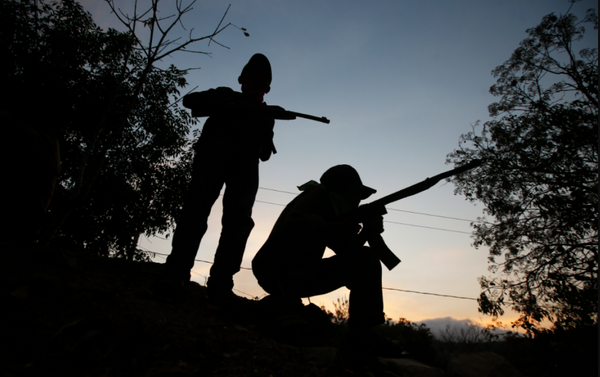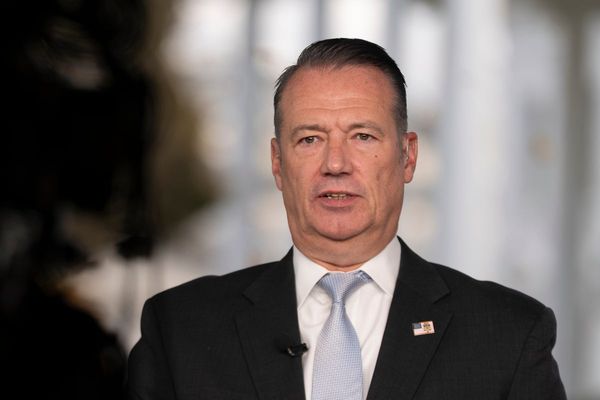
Is there a word less erotic in the English language than “wedlock”? Some entirely unoriginal people would, of course, argue that “moist” is worse, but for me nothing beats wedlock. (Other than “hubby”.) Seeing it appear in the papers, in light of new figures showing that the majority of babies in England and Wales were born “out of wedlock” in 2021, brought on a strong feeling of queasiness.
It’s a similar feeling to the one provoked by reading about the rollback of abortion rights in the US: the anxiety that the past is so not as distant as you, an autonomous woman in the 21st century, once thought. It’s a reminder that there are still people in the world who think in terms of words like “wedlock” and “bastards” and “illegitimate”, and, usually, “sin”.
So, according to the Daily Mail, which was citing the Office for National Statistics, only 48.7% of newborns in England and Wales were “to a legal couple”, falling below 50% for the first time since records began in 1845. I’m sure all the illegal couples out there are examining their life choices on reading this. Except, no one actually cares: marriage is simply not as much of a priority any more. Where once there was the notion that it conferred stability, for women and children, there is now the psychological insight that an unhappy home, even one with a marriage certificate nestled in the filing cabinet, is more damaging to a child than a happy unconventional one. People are, I think, less inclined to put up with misery in a relationship than they once were, and are aware they have more choice and more potential for adventure than to simply “work in a factory and marry a local girl”, as one male friend once gloomily described his prospects had he not left his home town.
Besides, our entire notion of stability has changed, with people in their 20s and beyond often trapped in preposterously expensive and insecure rented accommodation. No wonder they are putting off marriage or eschewing it entirely. (The pandemic is another factor. There’s nothing like a feeling of apocalypse to make you reassess the order in which you planned to achieve certain “milestones”; after years of waiting for a time when a wedding seemed possible, many people I know simply went ahead and had a baby.) Lots of people don’t have the cash for a big wedding, or do it on the cheap after their child is born. The social pressure doesn’t exist in the same way – at least, I’d say, not in working-class and lower middle-class communities. Posh people still seem to feel more of an expectation, and also have the funds required for the string quartet, marquee hire and overpoached salmon.
I’m a married mother, and in a way I’m still coming to terms with how conventional that is. I don’t feel like a proper adult. I can’t drive. I don’t own a house. Marriage offered a stability that was lacking elsewhere in my life but I can also see why, in the absence of any other stability, the decision to get married can seem a bit ridiculous, like cosplaying a couple in the 1950s – without the low mortgage or stable job to go with it.
Marriage does offer a level of legal protection that makes it appealing as a step to take before having children, or at least it did before civil partnerships. It also remains, for many people, desirable and romantic (I am a sentimentalist myself). Among my unmarried friends with kids, there is usually the vague intention to do it some day – sometimes there is even a ring – but when you’ve committed to someone by having children with them, an irrevocable statement of intent far more meaningful to many than a wedding, it ceases to be as much of a life goal.
I wouldn’t exist had there not been an unmarried mother, back in the 1920s, who gave birth to my grandmother in a mother and baby home in Wales. Women, especially working-class women, have always have children “out of wedlock”, and faced the social consequences. In Ireland, they are still coming to terms with the legacy of how the Catholic church treated unmarried mothers and their babies. Whenever I see anyone extol the virtues of marriage for children’s wellbeing, I think of all the pain that came from the religious and societal pressure to be married, all the children it harmed.
We will probably see a return of some of that rhetoric as the birthrate continues to decline, but I don’t think it’ll have a great impact. Fewer teen pregnancies, more women postponing motherhood to get an education and career, marriage ceasing to be seen as the ultimate life goal: these are all signs of progress. As for giving a child a loving, secure upbringing, that requires much more than a ring and a vicar. Some supportive policies for parents would be a good start.
Rhiannon Lucy Cosslett is a Guardian columnist and author
-
Comments on this piece are premoderated to ensure discussion remains on topics raised by the writer. Please be aware there may be a short delay in comments appearing on the site.







